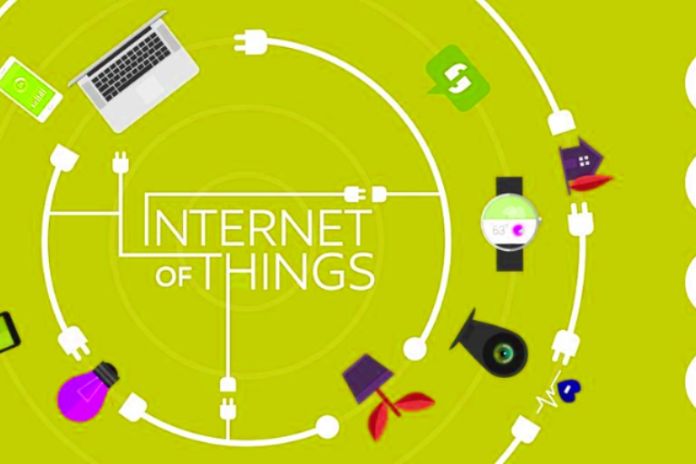The Internet of things (IoT) has transformed how companies manage information technology (IT) resources and corporate data. Indeed, cloud computing, big data, and artificial intelligence are reinventing technology architecture and thinking in companies.
On the other hand, for the company’s IT infrastructure and operations to absorb these impacts effectively, it is essential to take some precautions. Follow this post and see how this is possible. Good reading!
In The Corporate World
Fundamentally, the Internet of Things is expanding the internet network from conventional devices, such as computers, smartphones, and tablets, to various everyday items that use embedded technology to communicate with the external environment.
In the corporate context, however, the Internet of Things goes beyond consumer equipment connected to the Internet. So, sooner or later, every business will need IT to build or adapt an infrastructure to support it.
Applications already exist for a range of purposes and markets. Energy companies, for example, use networked sensors to measure vibrations in turbines. They send this data over the network for the system to analyze to predict when machines need maintenance or fail.
For example, even a gift basket business can deploy sensors to monitor the temperature of perishable goods. Delivering can be expedited if it starts to rise in storage or transit. This increases customer satisfaction and prevents product deterioration.
The Relationship Between The Internet Of Things And IT
In other words, the Internet of Things complements the infrastructure and the overall IT landscape. A wide range of new hardware, software, connectivity solutions, and services can help the industry streamline company processes.
Before finding and adopting the ideal applications for the demands of the business, however, it is necessary to prepare the organization’s IT to receive innovation. This preparation helps to avoid common mistakes. According to a Cisco survey done in May 2017, there are five main challenges faced by companies that can cause IoT projects to fail:
- budget exceeded;
- integration between teams;
- limited in-house experience;
- data quality;
- completion time.
Most of these difficulties can be resolved with proper planning. However, other precautions deserve attention, especially for an IT manager. Check out what they are below!
Beware Of Information Security
After all, what makes the Internet of things different from the traditional Internet? The first answer might be obvious: people! The Internet of things does not depend on human intervention; the sensors collect, communicate and analyze information.
This guarantees new ways of creating value through technology, media, and telecommunications. From them, entirely new businesses and revenue streams can be created that provide more efficient experiences for consumers.
On the other hand, this brings new opportunities for information to be compromised. Many connected devices store and transmit sensitive and personal information, and that data needs to be heavily protected.
There is no simple way to address these challenges and manage the security of interconnected devices. However, some actions can be taken to overcome these adversities:
- it would help if you had a truly open ecosystem with standardized application programming interfaces that allow interoperability with a reliable and automated correction system;
- devices must be hardened with industry best security practices to protect against common security flaws;
- devices must be well secured on connected networks (intranet and Internet).
Infrastructure Adaptation
As businesses become more interconnected, there is the potential for new devices to emerge. To interconnect them, it is necessary to have a powerful infrastructure whose foundations are efficiency, automation, and the ability to scale.
In this sense, cloud storage is of fundamental importance. Cloud computing, like the Internet of things, increases the efficiency of corporate processes. The relationship between them is complementary: on the one hand, the Internet of things produces a lot of data, and on the other, cloud computing opens the way for them to travel.
Therefore, operating devices with the Internet of things requires excellent performance. In this sense, an internal infrastructure may need help in terms of its ability to sustain the high demand for data.
When using cloud computing, you have a robust infrastructure with high performance and qualified data centers to sustain large amounts of data and applications. Undoubtedly, this is the best option for this case.
Preparing The Team For The New Culture
In addition to the technical aspect, it is very important to prepare the team to receive innovations. Only in this way can all the possibilities arising from the Internet of Things be fully exploited. That is, the implementation of these applications requires a cultural change in the company.
The transformation may only go very far with people prepared for this journey. As part of the communication plan, it is important to have the team’s perspective, which can highlight outstanding concerns or bring new approaches.
Think of it regarding technology, business processes, and organizational structure. Also, remember to provide transparency to employees at all levels to prepare them for change.
The Internet of Things guarantees companies the opportunity to create significant competitive advantages. The risks of breaching security or losing control over operating systems should encourage organizations to adopt the technology. Instead, they must take appropriate measures to assess and secure IT infrastructures and operations.
Also Read: What The Internet Of Things Can Already Do For Business

